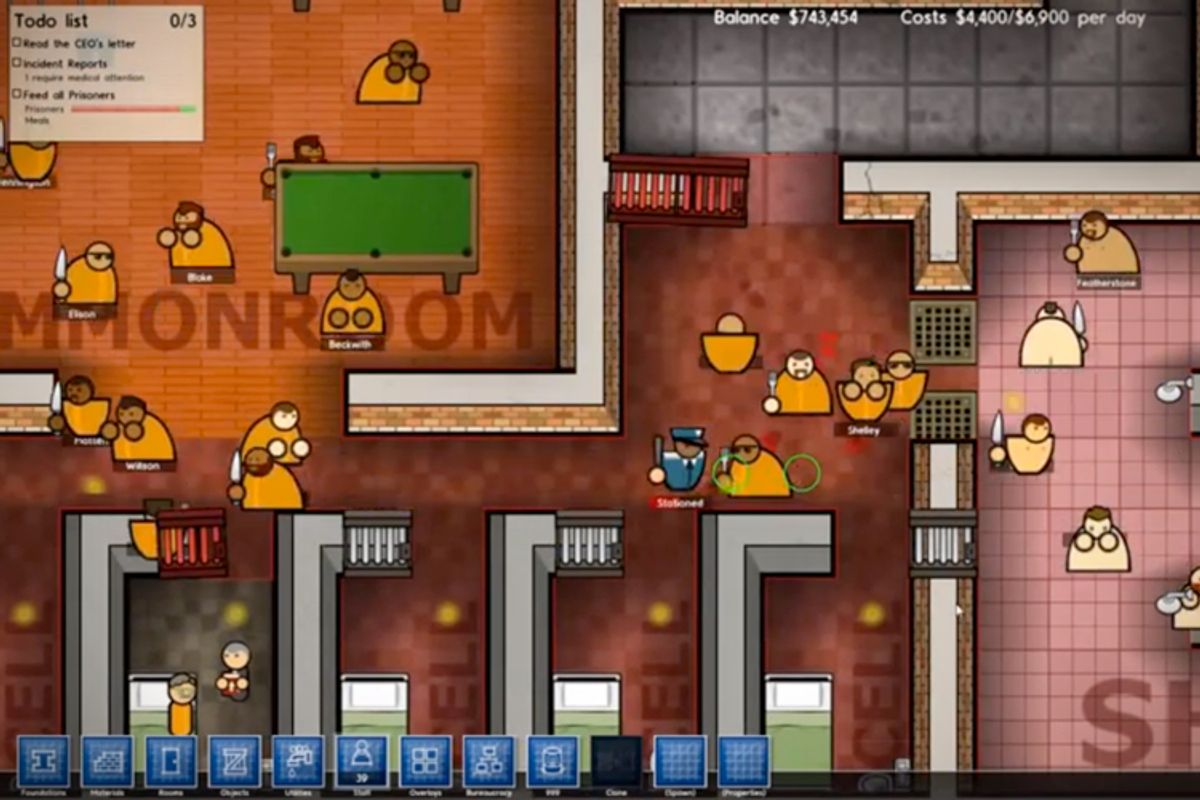In October, I took a look at a few video games that can still make sense if you didn’t grow up around the medium. This week I'd like to highlight five games that manage to articulate a clear social message through their gameplay. One of the most exciting things about interactive entertainment is that it allows a player to get a first-hand experience of a point of view they’ll never be able to experience in real life. Video games can let you see the world through the eyes of an 8-year-old girl or a billionaire corporate tycoon, and allow you to feel all the inherent advantages and disadvantages that come with different territory. As the industry matures and diversifies, more and more developers are taking advantage of the unique possibilities of immersion. It’s heartwarming to watch video games grow up before our very eyes.
Anna Anthropy is a transgender woman who uses "Dys4ia" to tell a very autobiographical story that tackles every angle of her decision to undergo hormonal treatment. The game works as a series of small sequences that deal with everything from feeling judged in a women’s bathroom to sensitive nipples after a week of estrogen pills. It’s all very honest, and open, and unafraid to be awkward, wrapping up into a narrative that can be inspiring no matter what your personal background. For me, a straight male, it helped just a little bit to understand the unique challenges that come with being transgender. The video game format helps articulate these challenges in a way I've never seen before.
Strategy games exist to let the player do all the fascinating paper-pushing that comes with running an enterprise. You could be organizing a theme park, or a baseball team, or the ongoing policy of one of the leaders of the free world. But as far as I know, "Prison Architect" is the only strategy game that actually offers an implicit social commentary on its subject matter. You are running a for-profit prison, and you have to make sure that your business works. The comfort, privacy and cleanliness of your prisoners all impact your bottom line – the more you provide, the more you’re sapping out of your net gain. The game doesn’t present any sanctimonious storytelling; instead it allows you to recognize the questionable morals of the entire prison-industrial system firsthand. There’s a remarkable feeling of guilt when you’re the one cutting cell size to maximize cash flow.
Routines are part of life. There’s something comfortable about having a daily narrative, and maybe that’s the beauty of "Every Day the Same Dream." It’s a game that can go on forever; wake up, kiss your wife, drive to work, sit at your cubicle and lead a comfortable life. But when you stop following the obvious directions, you’ll find some new, subversive beauty. It’s a game about jumping into someone else’s life, and seeing the spouts of color you can find in their little world.
This is perhaps the simplest game on this list. It's little more than interactive fiction, about something as normal and undramatic as living with depression. "Depression Quest" is built with a clear purpose: to show people who don’t suffer from mental illness a glimpse of what it’s like. It builds empathy, and understanding, in a world where depression is still romanticized in mass media. It’s structured like a choose-your-own-adventure novel, but with all the good options scratched out. You might wake up strung out and late for work, and as you examine your options of what to do next, you’ll see a huge red line through “hop out of bed and start getting ready for work. You’ll be late but it’s better than not going at all.” The game helps you understand how “snapping out of it” can be an impossibility for those suffering from depression.
Someone once described "Cart Life" to me as a “punk game,” and I think that makes a lot of sense. It’s painted entirely in black and white and scored with harsh 8-bit music, and it tells a remarkably organic story. You pick a character who has a job making coffee or selling newspapers, and you try to scrape by. Money is short, time is limited, and hundreds of different things sap your energy. It’s a monotonous game, but that’s the point. Grinding coffee beans over and over again suddenly feels so justified when it lets you walk your daughter to school every morning.
We talk so much about the disregarded bottom rung of American society, and how they’re forgotten by its overbearing infrastructure. But "Cart Life" doesn’t offer any self-righteous lecturing; it actually forces the player to live as someone just scraping by, and embrace the stubborn, personal hope behind every entrepreneur, no matter how small.

Shares